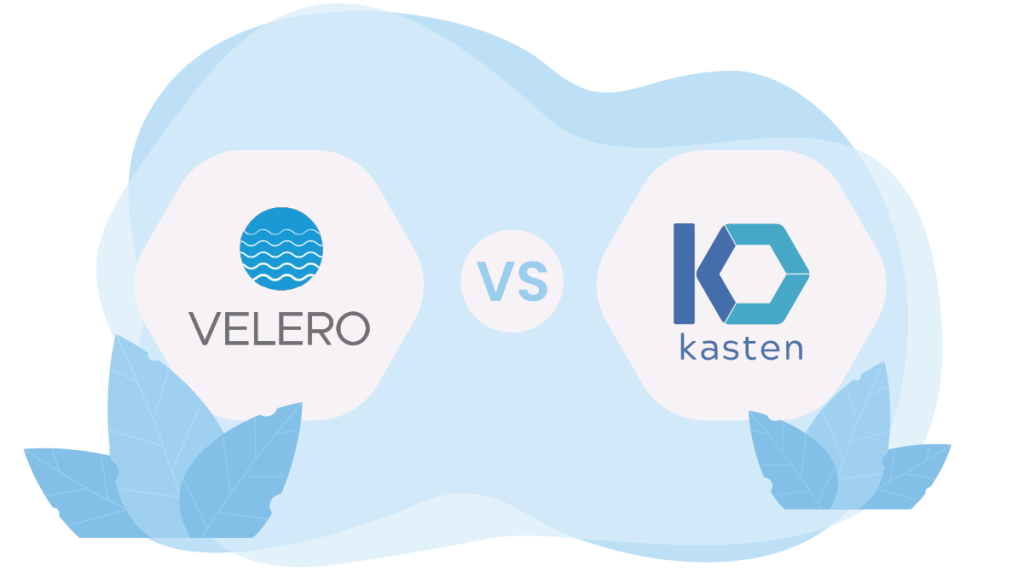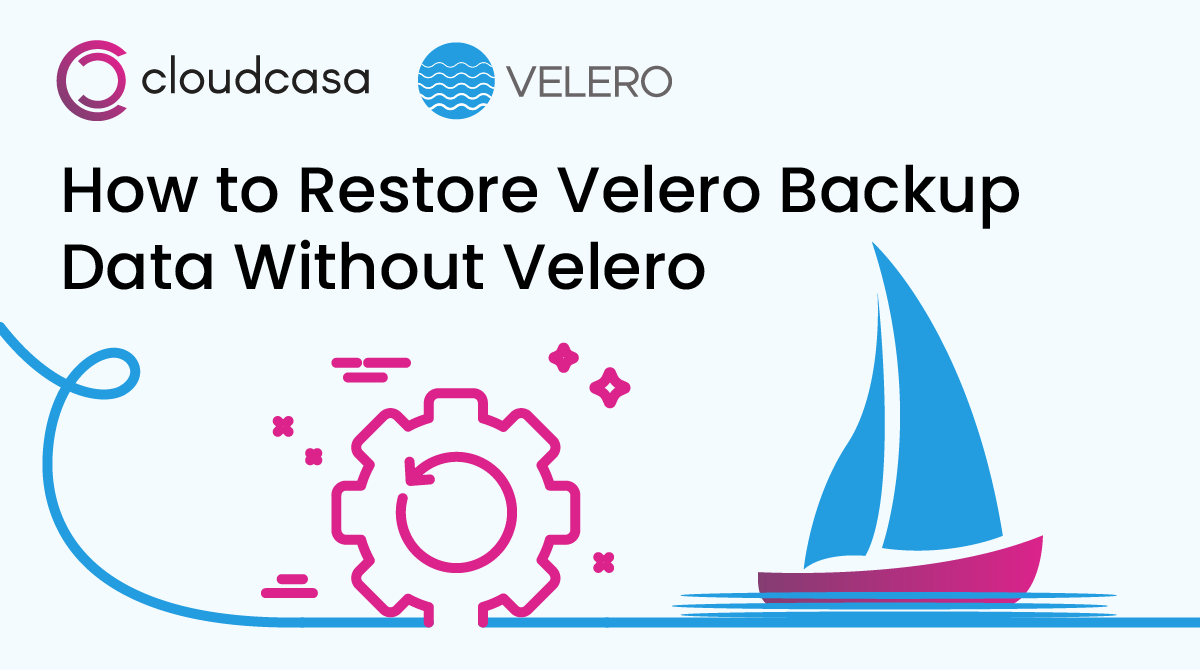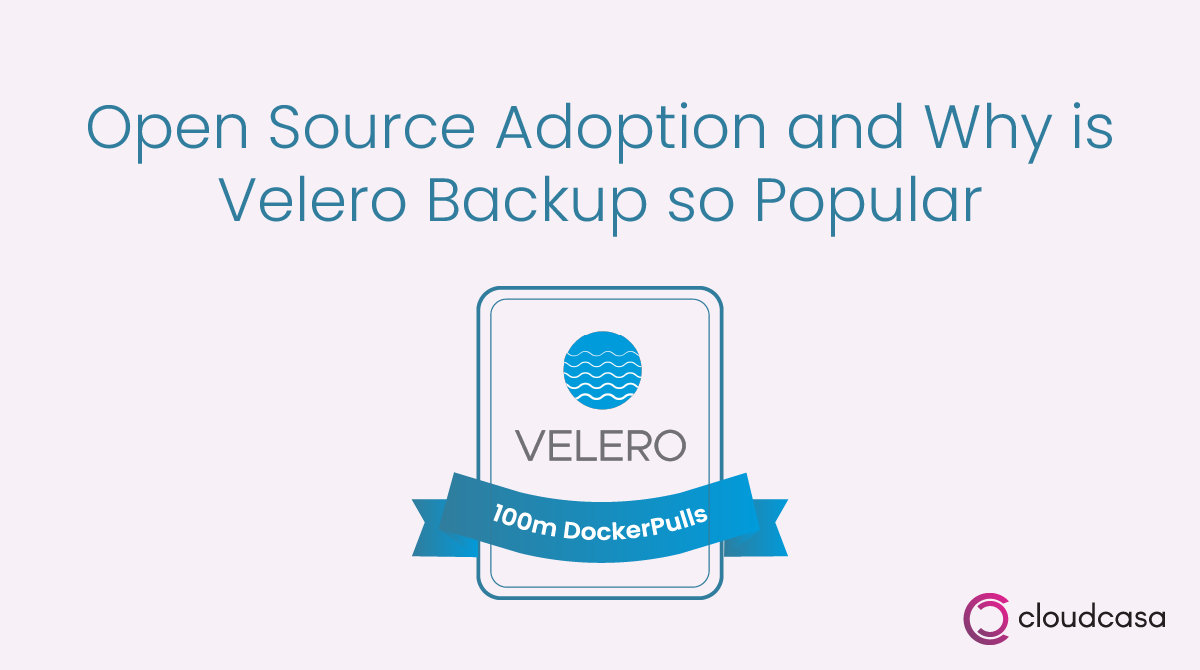+ Outgrown a single cluster solution like Velero
Velero is a single cluster solution. You must define and manage settings and policies at a cluster level and replicate them on each cluster. This results in a lot of management overhead and potential configuration drift.
Kasten was originally built as a single cluster solution as well. It added a multi-cluster manager to its architecture in version K10 v3.0. Since it was a band-aid, Kasten’s multi-cluster manager acts more or less as a configuration distributor rather than as a manager. This poor man’s implementation allows you to templatize settings and configs but doesn’t really prevent drifts.
Our Recommendation: If you are considering switching because you need multi-cluster management, we recommend taking a look at CloudCasa for Velero– specifically designed to offer multi-cluster management on top of Velero. You don’t need to switch or migrate away and there is no lock-in. You can adopt the multi-cluster management layer fast, with no disruption or downtime.
+ Velero is too complex and has no UI
For a first-time user, Velero can be quite daunting. Backup tasks are often not assigned to the most seasoned developers or DevOps engineers on a team, leaving them to navigate through extensive documentation to complete their first backup and restore.
Kasten has a pleasant interface and guides user through a setup much more intuitively. It’s easier to administer.
Our Recommendation: If you’d like to stick to open source Velero with all its strong benefits, but yearn for simplicity, CloudCasa offers an equally pleasant interface and guides a user through the setup just as well. Even better, CloudCasa for Velero is a SaaS portal with no infrastructure and setup burden that comes with Kasten.
+ Concerned with the security of Velero
Given that it is a single cluster solution, you must distribute cloud credentials across multiple clusters. This creates a large attack surface for an organization.
Kasten often has the same issues since it is distributing them locally through its multi-cluster manager.
Our Recommendation: A better solution in this case is to move to keyless authentication methods such as AWS IRSA, Azure Service Principals and GCP’s workload identities. CloudCasa for Velero makes these super easy to configure for Velero users.
+ RESTIC used by Velero consumes much memory and is erratic
RESTIC is the default open-source data mover in Velero and it admittedly works best for specific type of PVs with an average number of files that are closer to an average file size. It doesn’t do a great job if you have too many files or if your files are too large. It compresses, but doesn’t deduplicate. Many issues raised by Velero users relate more to Restic than Velero itself.
Kasten utilizes Kopia, which is demonstrably better than Restic. Kopia is an open source project that was built and maintained by a Googler that is now being supported by Veeam.
Our Recommendation: In v1.10, Velero provides the option of using Kopia as the data mover instead of Velero. The integration has worked so well so far that Velero is already planning to deprecate Restic. If you are seeing issues with the reliability and performance of Velero backups/restores, you would do well to consider moving to Kopia data mover first. You can move one cluster at a time to minimize any perceived risk.
+ Compliance and Audit needs are not met
Since Velero is a single cluster solution with no centralized catalog, it can be difficult to maintain compliance and audit activities.
Kasten presents better tools to manage these enterprise needs.
Our Recommendation: These factors have again been resolved with a Velero complementary service like CloudCasa. You can have your cake and eat it too without needing to migrate to an alternative solution like Kasten.
+ Have advanced recovery requirements
Velero is great at restoring back to the same cluster. Velero can also do a good job restoring back to another cluster that is very similar to the source cluster. Velero does have advanced recovery capabilities such as storage class mappings, node port mappings, restore order preferences etc.
Kasten offers several advantages over Velere, including guided recoveries. This feature is crucial during downtime as it eliminates the need to consult manuals.
Our Recommendation: Both solutions have pros and cons, but guided recovery on Velero recovery points can be accomplished with an open-source compatible service such as CloudCasa. In fact, CloudCasa can power even more advanced recoveries into cloud than Kasten can. CloudCasa can create an entire cluster on the fly, allowing you to define size, memory, auto-scaling, VPC/VNet, Security Groups, Cluster add-ons and more as a recovery template.
+ Need Enterprise Support
Velera support is only available as part of a comprehensive Tanzu Enterprise license bundle, which is often inaccessible to most Velera users. The lack of guaranteed support during downtime can be concerning. While Velere’s community support is generally good, there is no assurance of timely responses, especially for more complex and time-consuming requests.
Kasten benefits from extensive support provided by Veeam. However, the specific number of Veeam team members specializing in Kubernetes remains unclear. Additionally, while Veeam boasts a network of 30,000 channel partners, it is reasonable to assume that the majority may not possess the specialized expertise required for Kubernetes.
Our Recommendation: This is a challenging decision. While some support is better than none, and Kasten does have an advantage over Velero, it’s important to note that Velero’s open-source code base has been established for some time. Organizations like CloudCasa have been utilizing Velero for several years and can offer guidance and expertise. You can find us active on Velero Slack and highly responsive on CloudCasa LiveChat.
+ Kasten's Pricing
When comparing Kubernetes backup solutions, cost and management overhead are significant considerations. Velero, a widely used open-source tool, offers free functionality but requires hands-on management. In contrast, Kasten, known for its comprehensive features, often comes with a higher price tag, making “Kasten pricing” a key factor in decision-making.
Our Recommendation: For businesses seeking an efficient and economical backup solution, CloudCasa for Velero presents a compelling choice. By seamlessly integrating with your existing Velero installation, CloudCasa enhances Velero’s capabilities without the complexity of switching to entirely new systems. We also provide a self-hosted CloudCasa option for greater control and flexibility. Most notably, our pricing model is competitive, typically only 20-25% of Kasten’s pricing per worker node, making CloudCasa a financially sensible alternative to the higher “Kasten pricing.”
This strategic use of Velero’s robust open-source foundation makes it operationally and financially impractical to switch to a costly proprietary solution like Kasten. Explore CloudCasa for an affordable, powerful backup solution that aligns with your financial and technical needs.




